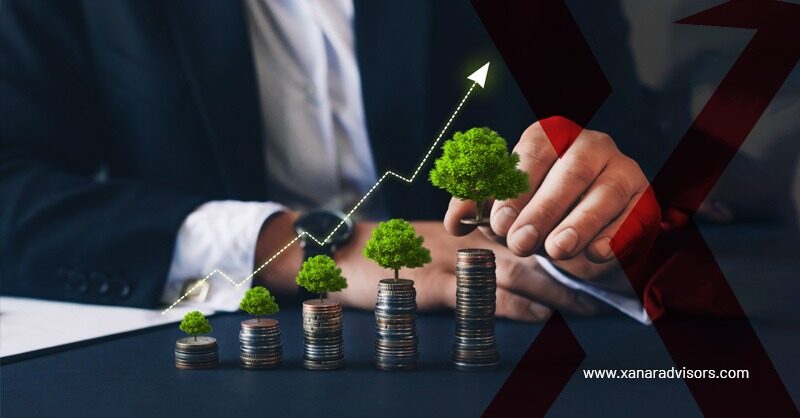Sustainable Investing: The Intersection of Wealth and Social Responsibility

Sustainable investing, once a niche segment, has witnessed a remarkable surge in popularity in recent years. This shift is driven by a growing awareness of environmental and social issues, coupled with the realization that sustainable investments can offer both financial returns and positive societal impact.
The Evolution of Sustainable Investing
Traditionally, sustainable investing focused on exclusionary practices, avoiding companies involved in harmful activities. However, there has been a significant shift towards integrating environmental, social, and governance (ESG) factors into the investment decision-making process. This approach aims to identify companies that are not only financially sound but also contribute positively to society and the environment.
Key Trends
Growing Investor Interest
Investors are increasingly recognizing the importance of aligning their financial goals with their values. This has led to a significant increase in demand for sustainable investment products, such as ethical funds, impact investing, and sustainable ETFs. As more investors seek to make a positive impact through their investments, the sustainable investing market is poised for continued growth.
Global Expansion
Sustainable investing has gained traction worldwide, with Europe and the U.S. leading the way. However, other regions, such as Asia-Pacific and Latin America, are also experiencing rapid growth in this sector. This global expansion reflects a growing recognition of the importance of sustainability and the potential benefits of sustainable investments.
Focus on Real-World Impact
Investors are no longer content with simply avoiding harmful companies; they are seeking investments that have a measurable positive impact on society and the environment. This shift towards impact investing has led to the emergence of new investment strategies and products that focus on addressing specific social and environmental issues.
Risk-Adjusted Returns
Sustainable investing is not just about doing good; it can also be financially rewarding. Studies have shown that ESG-focused investments can deliver competitive returns while mitigating risks. By considering environmental, social, and governance factors, investors can identify companies that are better positioned to manage risks and seize opportunities in the long term.
Challenges and Opportunities
Despite its growing popularity, sustainable investing faces several challenges:
Data Availability: Accurate and consistent ESG data can be difficult to obtain, hindering the ability to assess the sustainability performance of companies.
Standardization: There is a lack of standardized ESG metrics and reporting frameworks, making it challenging to compare different investments.
Integration with Traditional Investment Processes: Incorporating ESG factors into investment decision-making requires a shift in mindset and processes.
However, these challenges also present opportunities for innovation and growth. The development of standardized ESG metrics, improved data availability, and advancements in technology can help address these obstacles and further drive the adoption of sustainable investing.
The Role of Wealth Managers
Wealth managers can play a pivotal role in helping clients navigate the complex landscape of sustainable investing. By leveraging their expertise and understanding of clients’ individual needs, wealth managers can provide valuable guidance and support in building sustainable investment portfolios.
Here’s what wealth managers bring to the table:
Personalized Advice: Wealth managers can assess clients’ values, goals, and risk tolerance to identify sustainable investment opportunities that align with their preferences.
Expert Knowledge: They possess in-depth knowledge of sustainable investment strategies, ESG frameworks, and emerging trends in the sector.
Access to Sustainable Options: Wealth managers can connect clients with a wide range of sustainable investment options, including ethical funds, impact investing, and sustainable ETFs.
Due Diligence: They can conduct thorough research and analysis to assess the sustainability performance of companies and identify potential risks and opportunities.
Portfolio Construction: Wealth managers can help clients build diversified portfolios that incorporate sustainable investments while considering risk and return objectives.
Monitoring and Reporting: They can track the performance of sustainable investments and provide regular updates to clients on their portfolio’s impact.
Conclusion
Sustainable investing is no longer just a trend; it is becoming a mainstream investment strategy. As investors increasingly seek to align their financial goals with their values, the demand for sustainable investment products will continue to grow. Wealth managers who can effectively integrate ESG factors into their investment processes will be well-positioned to meet the evolving needs of their clients and contribute to a more sustainable future.
About Xanara
Xanara is a leading wealth management firm dedicated to providing personalized financial solutions tailored to your unique needs. Our team of experienced professionals offers comprehensive wealth management services, including investment management, financial planning, retirement planning, and estate planning.
At Xanara, we believe in building long-term relationships with our clients based on trust, transparency, and exceptional service. We are committed to helping you achieve your financial goals and build a secure future.
